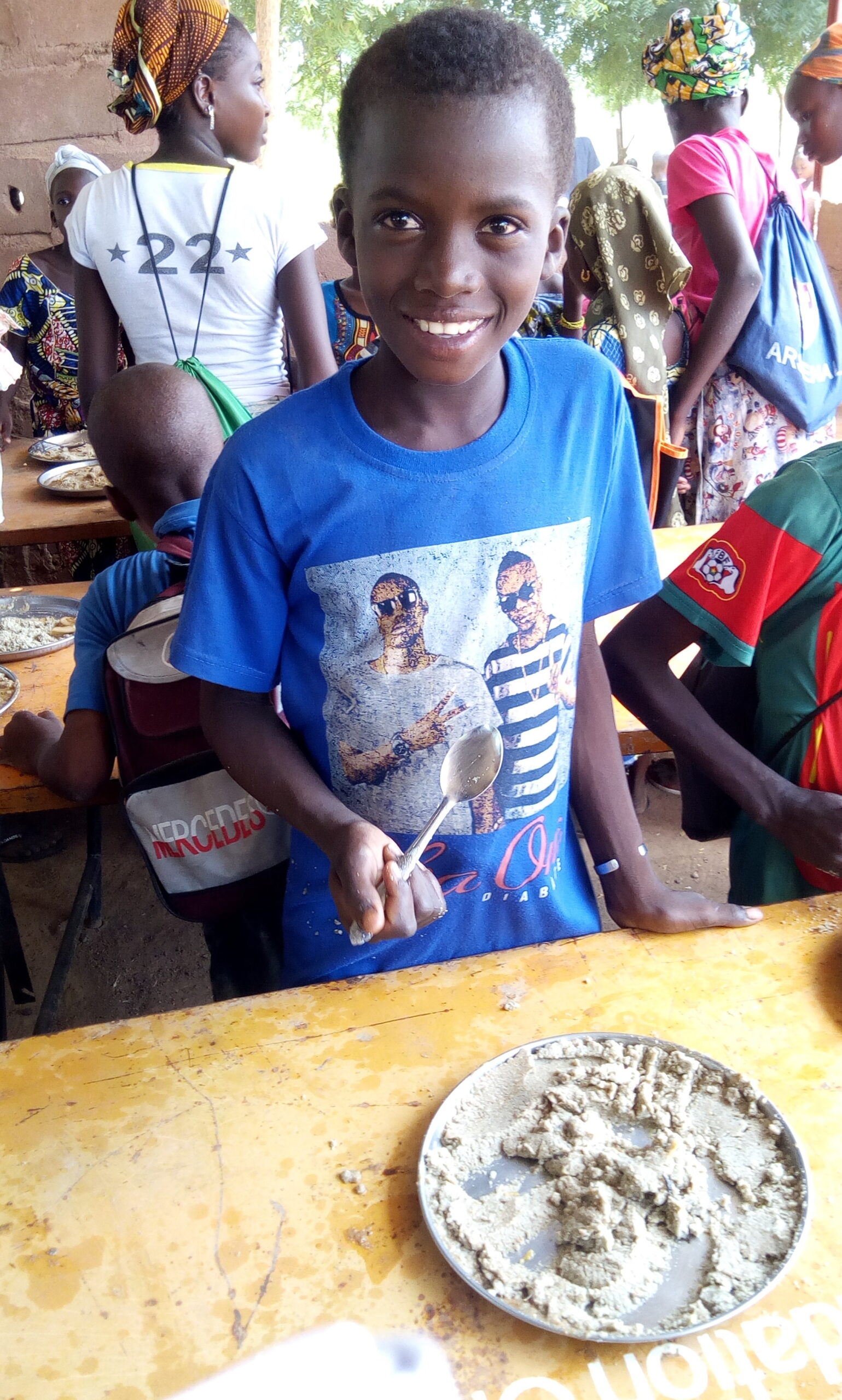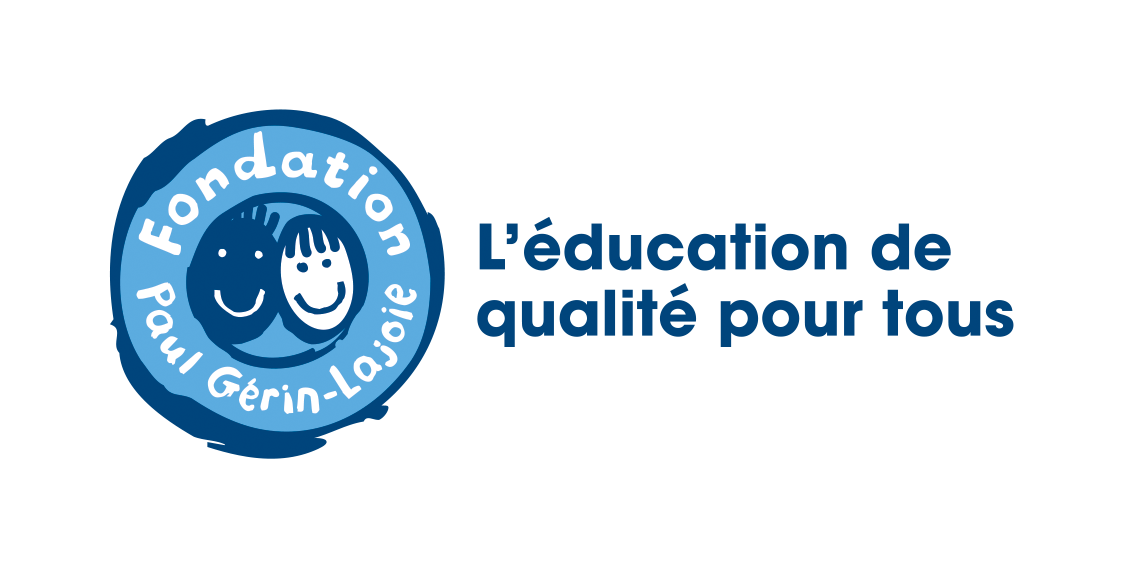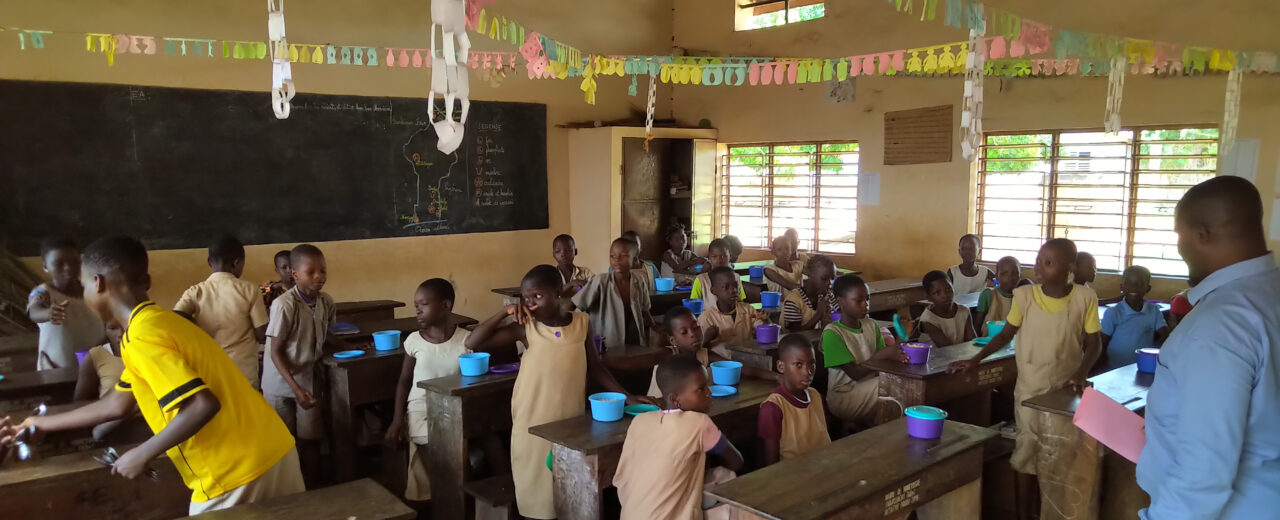 FEEDING FUTURES: ONE LUNCH A DAY TO MAKE THEM STAY
FEEDING FUTURES: ONE LUNCH A DAY TO MAKE THEM STAY
Addressing school drop-out rates and food insecurity in Bénin
Flore, Rebecca and Estelle helped us address an ongoing mystery: where were schoolchildren disappearing to in the afternoons? Why were schools suddenly emptying out? Mystery solved: children eagerly walked home for lunch, an average of 4 to 6 kilometers. But, lacking energy due to incomplete meals and long walks, they did not return to school afterwards. Flore is a 10-year-old girl from the village of Logohoué, in Houéyogbé Region. As the project kicked off, she received school supplies for the year from the Fondation Paul Gérin-Lajoie's partner on the ground - a school bag, some notebooks, pens and geometry instruments. Flore wishes the “Cantines scolaires” meal program a long life, hoping her younger brothers and sisters also benefit from warm daily lunches and stay in school. Like Rebecca (10 years old) and Estelle (11 years old), in the village of Akokponawa in Bopa Region, she was proud to be involved in the project and vowed to work hard to pass her end-of-year exams.
Necessity
Better learning conditions for schoolchildren in Mono Department (Bénin)
Activity
Four schools in Bopa and Houéyogbé develop a meal program based on local harvest.
Countable effort
1,000+ schoolchildren benefit from warm and nutritious daily lunches.
Result
Boosted academic performance and school attendance, especially in girls
Systemic effect
School enrollment increases in the region which means more children can grow to reach their full potential.
Background
In Bopa and Houéyogbé (Bénin), a significant number of households are considered food insecure - up to 59% of families in Bopa and 34% in Houeyogbé [World Food Programme, 2017]. In recent years, the effects of climate change, natural disasters, conflicts in neighboring countries, such as Nigeria and Mali, and the COVID-19 pandemic have worsened the regional food insecurity crisis, specifically in South-West Bénin. As a result, families are often unable to offer their children consistent access to sufficient food to ensure they grow to their full potential. Food insecurity and insufficient nutritional intake are major causes of both weak school performance and dropout rates (14,4% in Bopa and 13,4% in Houéyogbé) [Government of Bénin, 2012]. A metric known as learning-adjusted years of schooling (LAYS), which combines both quantity and quality of education received, demonstrates that improving the health of schoolchildren has as much of an impact on learning as qualified teachers or efficient classroom practices [World Bank, 2018]. This is where our GOOD DEED comes in, offering a cost-effective solution to improve schoolchildren's health and learning conditions.
The good deed
The Fondation Paul Gérin-Lajoie's mission is to provide quality education to all. In Bopa and Houéyogbé (Bénin), this means supporting children's health so their entire focus can be on learning and growing to their full potential. “Cantines scolaires” is a school meal program which offers 1,080 students in four schools a daily lunch made from local harvest. Complementing the nutritional intake of food insecure children will result in improved health, learning conditions and performance, and encourage better school attendance, especially amongst girls and other vulnerable groups. This will also have significant positive effects on the well-being of families, by reducing financial pressure. At the community level, the school meal program will benefit mobilization and solidarity, as well as economic well-being through stimulation of local economies and job creation.

About Communes of Bopa and Houéyogbé, Mono Department, Bénin
Porto-Novo is the capital of Benin
Benin’s population
13 million (2021)
495,307 in Mono Department (2013)
GDP per capita
1715 CAD$
ranking 126th of 186 countries
HDI 0,525
ranking 166th of 191 countries
together with Uganda
Pendjari National Park in northwestern Benin is part of the W-Arly-Pendjari Complex, a transnational UNESCO World Heritage site that spans Benin, Burkina Faso, and Niger. The park is home to a wide variety of wildlife, including elephants, lions, buffaloes, hartebeest, wild dogs, leopards, hyenas, and many species of birds. It is also one of the last remaining strongholds for the critically endangered West African lion.
About the organization and further information

Fondation Paul Gérin-Lajoie
Website
Further information and source
- • 2019. Costs-benefits analysis of WFP Benin School feeding programme, UN World Food Programme.
- • Filmer, Deon; Rogers, Halsey; Angrist, Noam; Sabarwal, Shwetlena, 2018. Learning-Adjusted Years of Schooling : Defining A New Macro Measure of Education, The World Bank Group.
- • Wall, Caitlin; Tolar-Peterson, Terezie; Reeder, Nicole; Roberts, Marina; Reynolds, Abby; Rico Mendez, Gina, 2022. The Impact of School Meal Programs on Educational Outcomes in African Schoolchildren: A Systematic Review, International Journal of Environme




